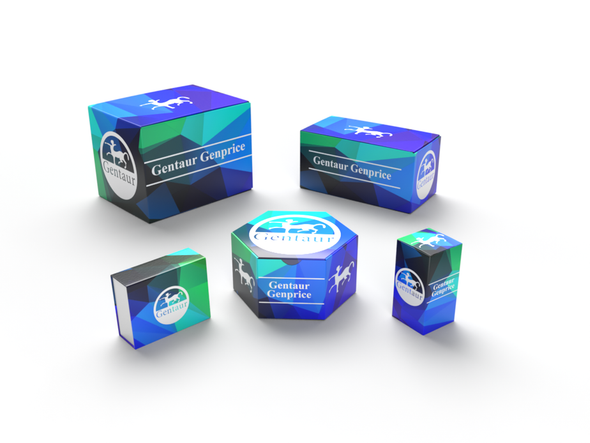749
Human CD30/TNFRSF8 protein, His tag (Animal-Free) | PRP2034
- SKU:
- 749-PRP2034
- Availability:
- Usually ships in 5 working days
Description
Human CD30/TNFRSF8 protein, His tag (Animal-Free) | PRP2034 | Gentaur UK, US & Europe Distribution
Product Category: Cytology
Application: Cytokines
Product Type: Cytokines (Animal-Free)
Sequence: Amino acid sequence derived from human CD30 protein (NP_001234.2, Met 1-Lys 379) was expressed with a polyhistidine tag at the C-terminus.
Activity: N/A
protein Lenght: The recombinant human CD30 protein consists of 368 amino acids and predicts a molecular mass of 40 kD.The apparent molecular mass of the human CD30 is approximately 75-90 kDa in SDS-PAGE under reducing conditions due to glycosylation.
Preparation: HEK 293 Cells
Purity: >95% as determined by SDS-PAGE
Formulation: Lyophilized from sterile PBS, pH 7.4.
Kit Component: N/A
Features & Benefits : Endotoxin: < 1 EU per µg of the protein as determined by the LAL method.
Molecular Weight: 40kDa
Usage Note: Always centrifuge tubes before opening. It is recommended to reconstitute the lyophilized human CD30 protein in the buffer which we provide not less than 100 µg/mL, which can then be further diluted to other aqueous solutions.
Storage Conditions: Lyophilized Human CD30/TNFRSF8 protein, His tag (Animal-Free) should be stored desiccated below -20°C. Upon reconstitution, the protein should be stored at 4°C between 2-7 days and for future use below -20°C. For long term storage it is recommended to add a carrier protein (0.113% HSA or BSA) . Please prevent freeze-thaw cycles.
Shipping: The product is shipped at ambient temperature.
Background: CD30 is a member of the tumor necrosis factor receptor superfamily, member 8 (TNFRSF8), and its normal expression is restricted to activated T and B cells. In tumor cells, CD30 expression is most commonly associated with lymphoid malignancies (Hodgkin and non-Hodgkin lymphomas) and is a therapeutic target using anti-CD30 antibody. CD30 expression has been reported also in mostly adult non-lymphoid malignancies, raising the possibility of CD30-targeted therapy for additional tumors. CD30 is normally not expressed by mast cells, which regulates proliferation/apoptosis and antibody responses. Aberrant expression of CD30 by mastocytosis mast cells and interaction with its ligand CD30L (CD153) appears to play an important role in the pathogenesis and clinical presentation of systemic mastocytosis.
Alternative Names: CD30 antigen; CD30; CD30KI-1; CD30L receptor; cytokine receptor CD30; D1S166EKi-1; Ki-1 antigen; Lymphocyte activation antigen CD30; TNFRSF8; tumor necrosis factor receptor superfamily member 8; tumor necrosis factor receptor superfamily, member 8
Search Names: CD30 antigen; CD30; CD30KI-1; CD30L receptor; cytokine receptor CD30; D1S166EKi-1; Ki-1 antigen; Lymphocyte activation antigen CD30; TNFRSF8; tumor necrosis factor receptor superfamily member 8; tumor necrosis factor receptor superfamily, member 8
Tag: CD30/TNFRSF8






